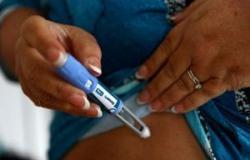He Ministry of Health has multiplied by more than two the number of foreign specialist medical qualifications in the last four years. The difference between the 231 of 2019 -adding specialists from the European Union and non-EU citizens – up to 520 in 2023, the figure has experienced a 125 percent increase that has been practically progressive, according to data provided by the Government in a parliamentary response: although there was a slight drop to 225 in 2020, in 2021 there were 305 and in 2022, 398, so the last interannual increase was 30.6 percent.
The Executive explains, in response to a question posed by the group of JxCatthat this acceleration in the rate of recognition of foreign specialist doctor titles is due to three measures promoted by the Ministry of Health in the last three years: reinforcement of human resourcescreation of two monthly evaluation committees and carrying out the theoretical-practical tests to obtain the title of non-EU specialist.
The truth is that the increase in the number of recognitions in the last year is explained by the notable acceleration in the case of non-EU medical specialist titles, which grew from 91 in 2022 to 227 in 2023, that is, more than double – just between double and triple -, compared to the slight decrease suffered in the case of European Union titles, which went from 307 in 2022 to 293 in 2023. This figure, in any case, is still higher than 186 specialist medical degrees recognized in 2021, 146 in 2020 and 196 in 2019.
Measures against the “collapse” in university approval
In his question, JxCat was also interested in the measures adopted to “resolve the collapse” generated since the Ministry of Science, Innovation and Universities in the homologation and equivalence of university degrees. In this regard, since Moncloa It is recalled that, since the entry into force of Royal Decree 889/2022, which represented the repeal of the previous one from 2014, these procedures have been given “efficiency and agility” “without losing the necessary rigor in their examination.”
Specifically, the Government highlights the mandatory electronic processing of the homologation procedures for foreign university degrees, the simplification of applications through the Electronic Office and the creation of the Commission for Technical Analysis of Approvals and Declarations of Equivalence “to facilitate and expedite the approval of general measures.”
It is also indicated that applicants for approval have been given the opportunity when the previous legal framework was still in force to withdraw from that file to “request the restart of the processing” according to the current RD without having to pay the relevant fee again. It is worth remembering that in order to start the process of homologation of non-EU titles With the mechanisms of the 2022 regulations, it is necessary to finalize those that have been pending since before it came into force.
Regarding human resources measures, the Executive highlights an “assignment” to an external company to manage requests in a situation of impasse, which “made it possible to eliminate one of the main management bottlenecks.” Reference is also made to the incorporation of 60 interim officials through “an emergency plan” and another 26 officials to the List of Jobs (RPT) of the Universities department from December 2023.
More than 75% of pending files are health
The Government indicates that, between 2019 and 2023, 157,322 applications for approval have been received and 85,697 procedures have been resolved, but it does not offer specific figures on how many of these titles whose approval is pending resolution are health-related. The National Agency for Quality Assessment and Accreditation (Aneca) did recently report that there are 1,657 files in the branch – including all specialties – that are in this situation, a figure that represents more than 75 percent of the total.
According to Aneca data from the first quarter of 2024, the resolution deadlines for the homologation and equivalence program for foreign university degrees are less than three months in 78 percent of cases. The delays in the remaining 22 percent are due to “incidents in the receipt of documentation” by the Ministry of Universities “or because they are associated with professions whose evaluation criteria are currently in the process of review,” as indicated in his appearance. in the Senate last Thursday the director of the organization, Pilar Panequewhich also highlighted that, “in no case,” the delay period “is greater than six months.”
This is a version that does not agree with the one offered by the Homologación Justa Ya platform, which represents non-EU university graduates of various specialties – including health – and who report that there are cases in which the wait to obtain approval lasts several years.
For her part, the Minister of Science, Innovation and Universities, Diana Morant, recently showed his confidence that his new Secretary General of Universities, Francisco García Pascual, “turns around” the system of homologation of medical degrees in the face of the “growing demand” for applications. “We are not only talking about incorporating new technologies but also about increasing action through embassies and closing new agreements with countries,” he said after the plenary session of the General Conference on University Policy held last Wednesday.
Although it may contain statements, data or notes from health institutions or professionals, the information contained in Medical Writing is edited and prepared by journalists. We recommend the reader that any health-related questions be consulted with a healthcare professional.






